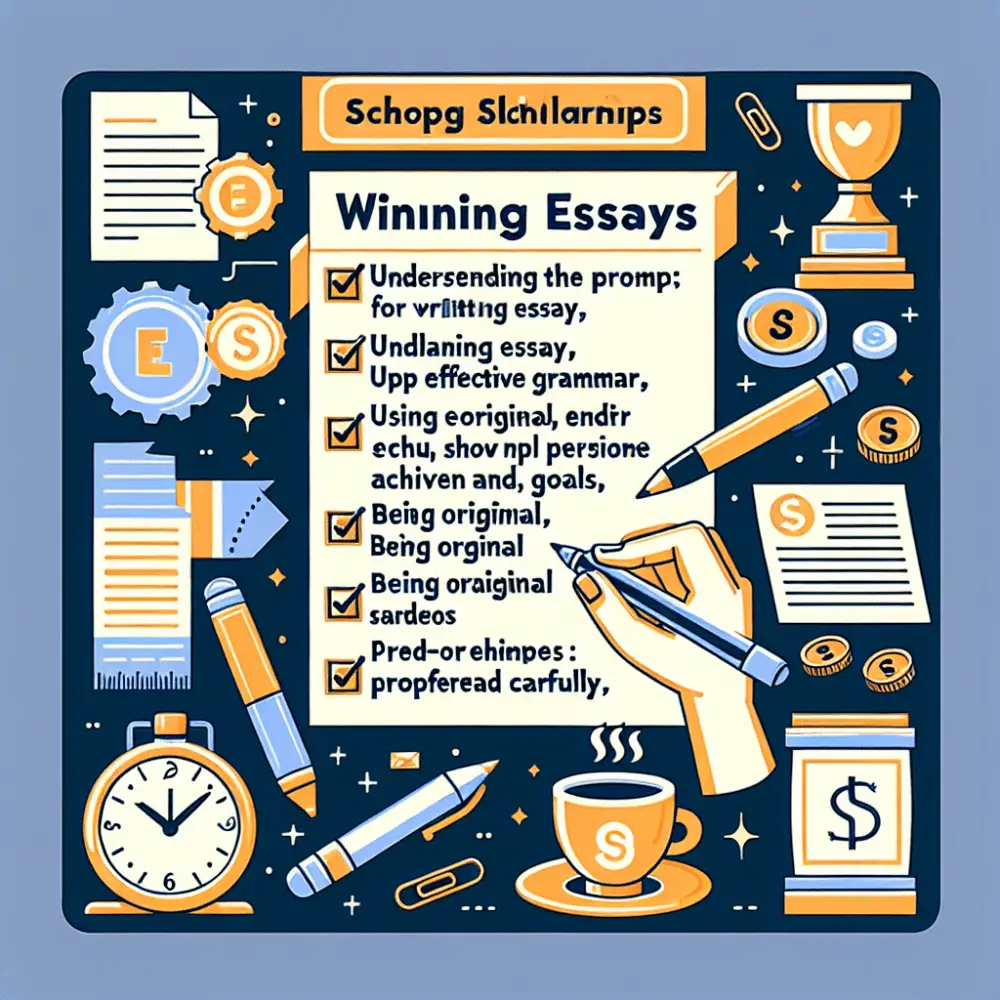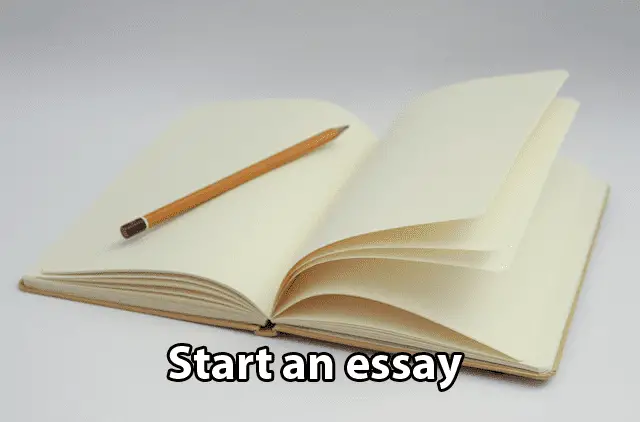
Scholarship essays are a key component of the application process for many students seeking financial aid for their education. They offer applicants a chance to showcase their unique qualities, accomplishments, and aspirations in a concise and compelling manner. Writing a winning scholarship essay can be daunting, but with the right strategies and guidance, crafting an impressive essay is within reach.
In this comprehensive guide, we will explore effective strategies to help you write standout scholarship essays that grab the attention of selection committees and increase your chances of receiving financial assistance for your academic pursuits.
Understanding the Prompt
Before you begin writing your scholarship essay, carefully read and understand the prompt provided by the scholarship provider. The prompt outlines what the selection committee is looking for in an ideal candidate and the specific information they want to see in your essay. Make sure to address all aspects of the prompt to demonstrate that you have thoroughly considered and understood what is being asked.
Brainstorming Ideas
Once you have a clear understanding of the prompt, brainstorm ideas for your essay. Reflect on your personal experiences, achievements, challenges overcome, future goals, and any other relevant information that sets you apart from other applicants. Consider what makes you unique and how those qualities align with the values and mission of the scholarship provider. Brainstorming helps generate compelling content for your essay and ensures that it stands out.
Crafting a Strong Introduction
The introduction is arguably the most important part of your scholarship essay as it sets the tone for the entire piece. Start with a hook that grabs the reader’s attention and makes them want to keep reading. This could be a powerful quote, an intriguing question, or a personal anecdote related to the prompt. Clearly state your thesis or main argument in one or two sentences to provide direction for the rest of your essay.
Telling Your Story
One effective strategy for writing a compelling scholarship essay is storytelling. Use descriptive language and vivid details to paint a picture of who you are and why you are deserving of financial assistance. Share personal anecdotes that highlight your values, passions, aspirations, and accomplishments in a way that resonates with the reader on an emotional level. Be authentic and genuine in sharing your story—this will make your essay more memorable and impactful.
Showcasing Your Achievements
When writing about your achievements, focus on quality over quantity. Highlight one or two significant accomplishments that showcase your skills, talents, character traits, or leadership abilities. Provide concrete examples or evidence to support your claims and demonstrate how these achievements have shaped who you are today.
Addressing Challenges
Many scholarship essays ask applicants to discuss challenges they have faced and how they have overcome them. This is an opportunity to showcase resilience, perseverance, problem-solving skills, and personal growth. Be honest about obstacles you have encountered but also emphasize how you have learned from these experiences and become stronger as a result.
Connecting Your Goals with Scholarship Objectives
Make clear connections between your educational goals and the objectives of the scholarship program or organization offering financial aid. Explain how receiving this scholarship will help you achieve these goals and contribute positively to society or your chosen field of study. Show enthusiasm for pursuing higher education opportunities through specific programs or initiatives supported by the scholarship provider.
Editing & Proofreading
After completing a draft of your scholarship essay, take time to edit and proofread it carefully before submitting it. Check for spelling errors, grammatical mistakes, punctuation issues, word choice inconsistencies, and overall clarity of expression. Consider asking someone else, such as a teacher, friend, parent, or academic advisor, to review it for feedback on content flow. Reading aloud can also help catch errors more easily. Make necessary revisions based on the feedback received from others.
FAQs
Q: How long should my scholarship essay be? A: Most scholarships provide guidelines regarding word count or page length requirements for essays. As a general rule, aim for around 500-1,000 words but always follow the guidelines provided by each individual application.
Q: Can I reuse parts of my existing essays? A: While some overlap may occur between different applications, it’s important that each scholarship essay is specifically tailored to the requirements and expectations outlined for that particular award.
Q: How early should I start working on my scholarship essays? A: It’s recommended to begin working on your scholarship applications as early as possible to ensure ample time for research, drafting, and editing before deadlines approach.
Q: Are there any resources available online to help me improve my scholarship essays? A: Yes! Many websites and forums offer tips, strategies, and examples of successful scholarship essays. Take advantage of these resources to gain valuable insights into writing effective applications.

















German: “Super Artikel! Die Informationen waren wirklich hilfreich und interessant. Es ist immer toll, so gut recherchierte Inhalte zu finden. Weiter so! Ich bin gespannt darauf, in Zukunft mehr von dir zu lesen.”English: “Excellent article! The information was truly helpful and interesting. It’s always great to find such well-researched content. Keep it up! I look forward to reading more from you in the future.”
Thank you for your positive feedback! I’m glad you found the article helpful and interesting. I will continue to provide well-researched content in the future. Stay tuned for more articles!
I am so grateful for opportunities given to the young people like who at times face financial challenges that hinda us during our education.i am so grateful.
I’m glad you have found opportunities to support your education despite facing financial challenges. It’s important for young people to have access to scholarships and other resources that help make pursuing an education more feasible. Keep up the hard work and determination!